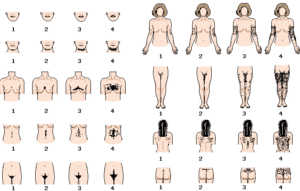Polycystic ovary is one of the main causes of infertility in women. This condition affects a high percentage of women of childbearing age and is associated with hormonal alterations that hinder the ovulation process. In this article, we will explore what polycystic ovary is, how it manifests itself, its causes, diagnosis, and the treatments available to improve fertility for women who suffer from it.
What is polycystic ovary?
Polycystic ovary is a hormonal disorder that affects women’s ovaries. It is characterized by the presence of numerous small cysts in the ovaries and a dysfunction in ovulation. Most women with this condition experience irregular menstrual cycles and, in many cases, have difficulty conceiving. Despite being one of the most common causes of infertility, polycystic ovary can be effectively treated with the right approach.
Causes of polycystic ovary
The main cause of polycystic ovary is related to insulin resistance, a condition in which the body does not respond properly to insulin, leading to increased production of this hormone. Excess insulin in the blood can increase the production of androgens, male hormones that disrupt the menstrual cycle and affect the ovulation process. This can trigger a number of symptoms, such as excessive growth of facial and body hair (hirsutism), acne, and alterations in the skin and scalp.
In addition to insulin resistance, genetic and environmental factors may also play a role in the development of polycystic ovary. In some women, this condition may be associated with a hormonal imbalance that interferes with the normal reproductive cycle.

Common symptoms of polycystic ovary
The symptoms of polycystic ovary can vary from woman to woman, but the most common include:
Irregular menstrual cycles: Women with polycystic ovary may have very long menstrual periods or may even stop menstruating altogether. Cycles can last longer than 35 days, and in some cases, women may not ovulate at all.
Hirsutism: An increase in hair on the body, especially in typical areas of men, such as the face, chest, and abdomen, is one of the most noticeable signs of polycystic ovary. This extra hair can be a direct result of excess androgens in the body.
Acne and oily skin: Elevated androgen production can also cause acne breakouts, as well as excessively oily skin and scalp.
Infertility: Irregular ovulation or lack of ovulation are common problems in women with polycystic ovary, which can make it difficult to conceive.
Weight gain: Many women with polycystic ovary experience weight gain, especially in the abdominal area, which can worsen insulin resistance and associated symptoms.
Diagnosis of polycystic ovary
Diagnosis is made through a combination of clinical tests and examinations. Doctors generally look for three main signs:
Irregular menstrual cycles: The presence of very long periods or the absence of menstruation can be indicative of an ovulation disorder.
Elevated androgen levels: If symptoms of hirsutism, acne, or oily skin are present, your doctor may order blood tests to measure androgen levels.
Polycystic ovaries on ultrasound: On an ultrasound, ovaries affected by polycystic ovary usually show a large number of small cysts that do not develop normally.
To confirm the diagnosis, it’s important for your doctor to rule out other possible causes of your symptoms, such as thyroid problems or hormonal dysfunctions. Bo always exhibits all of these symptoms, and the severity can vary between different women.
How does polycystic ovary affect fertility?
One of the biggest concerns for women with polycystic ovary is infertility. Since the condition is associated with disorders in ovulation, women with PCOS may face difficulties conceiving. The polycystic ovary interferes with the maturation of eggs and the release of eggs during the menstrual cycle.
However, it is important to note that not all women with polycystic ovary face infertility. Some may ovulate irregularly and, in some cases, conceive without treatment. In other cases, fertility can be restored through a combination of lifestyle changes and medical treatments.
Treatments for polycystic ovary and infertility
Although polycystic ovary can affect fertility, there are a variety of treatments that can help women conceive and manage symptoms of the condition. The most common approaches include:
1. Weight loss and lifestyle changes
One of the simplest and most effective recommendations is weight loss. Women with polycystic ovary often have insulin resistance, and losing 5% to 10% of body weight can improve ovarian function and restore ovulation. In addition, a balanced diet and regular exercise are essential to control symptoms.
2. Medications to induce ovulation
In those cases where weight loss is not enough, doctors may prescribe medications to induce ovulation. Clomiphene Citrate is one of the most widely used and can be effective in helping women with polycystic ovary ovulate on a regular basis. In some cases, hormone injections are also used to stimulate the ovaries.
3. Medications to improve insulin sensitivity
In women with polycystic ovary who have insulin resistance, medications such as Metformin may be helpful. Metformin improves the body’s response to insulin and may help reduce androgen levels, which promotes ovulation.
4. Surgical treatments
In more severe cases, when the above treatments are not effective, a surgical procedure called ovarian drilling may be considered. This procedure, performed laparoscopically, involves applying heat to the ovaries to reduce the amount of androgen-producing tissue, which can restore ovarian function.
Conclusion
Polycystic ovary is one of the leading causes of infertility in women, but with proper treatment, many women can overcome the challenges presented by this condition. With early diagnosis and a personalized approach, women with polycystic ovary can achieve pregnancy and lead a healthy life. If you are experiencing problems conceiving due to this condition, it is essential that you speak with a specialist to explore the treatment options available and find the best solution for you.
.
inSer
GroupArticle for the blog of El Colombiano Hablemos de Fertilidad

